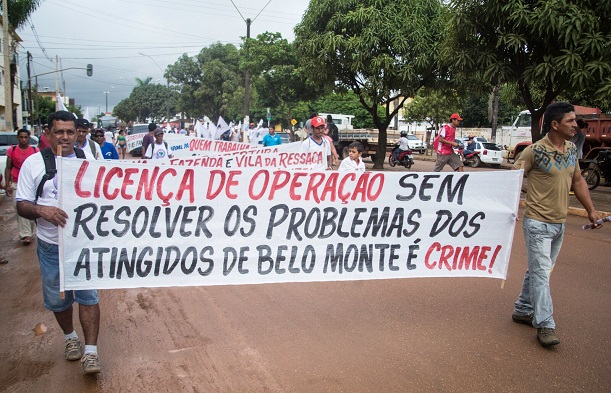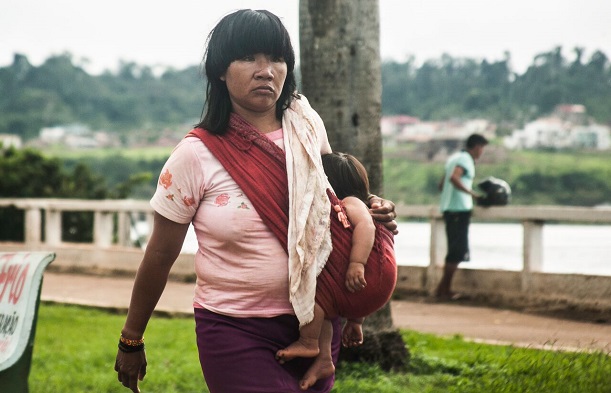Despite the unfulfilled conditions, Ibama authorizes operation of Belo Monte
Although several conditions determined in the Basic Environmental Plan unfulfilled by the Norte Energia consortium, Ibama granted, on Tuesday (24), the operating license of the Belo Monte Hydroelectric Plant Photos: […]
Publicado 25/11/2015
Although several conditions determined in the Basic Environmental Plan unfulfilled by the Norte Energia consortium, Ibama granted, on Tuesday (24), the operating license of the Belo Monte Hydroelectric Plant

Photos: Joka Madruga
Belo Monte is controversy since its original conception, when it was named Kararaô, and mobilized thousands of people opposed to its construction since the 80’s.
The Brazilian government promised that the Belo Monte Dam would be a milestone in changing the way of building dams in Brazil, but unfortunately became a step backwards within social treatment towards the families affected by the dam.
Compensation parameters achieved due to the struggles of the people affected throughout the history of the electricity sector have not been regarded to treat the people affected by this project. According to Iury Paulino, of the Movement of People Affected by Dams (MAB) from Altamira (PA), this is due to the absence of a national policy that guarantees the rights of those affected. “The lack of a specific legislation for the treatment of the affected populations favors the practice of denial of rights and turns more recurrent patrimonial compensation instead of implementation of an adequate repair and compensation responding to the situation of those affected, explained Iury.
According to a report from the National Council for Human Rights, which visited Altamira and region in the beginning of June this year, those responsible for the plant’s construction committed numerous human rights violations in the process of removing the affected families, such as the right to adequate information and the right to freedom to choose the best treatment for the affected population.
The region lives various social problems due to the lack of planing in receiving a huge number of workers from all around attracted by the construction of Belo Monte dam; there is lack of infrastructure, health care, education and security. This caused a situation of chaos regarding the social indexes. In Altamira, the dropout rate in primary education rose 57% between 2011 and 2013.

In addition, the city is currently living a war. The city has an average of 57 homicides per 100,000 inhabitants, according to the civil police. – Far superior number if you compare to World Health Organization’s index in non-epidemic situations, an average of 10 cases per 100,000 inhabitants. Between 2011 and 2014 the number of murders per year in Altamira jumped from 48 to 86 cases, an increase of almost 80%.
For MAB, the operating license for Belo Monte is a historical mistake, it represents the acquittal of Norte Energia’s crimes in not ensuring the rights of the affected population properly.
Currently, there are still families not registered, categories without its economic activities recognized as affected and families who received inadequate treatment, as the riverine and indigenous population. “The adjustments that come out as a condition for release of the license does not give security to the population, as in Belo Monte history all licenses were authorized with restrictions and this is becoming a snowball where the problems of the population is never resolved definitively, said Iury
New phase of struggle
Although Ibama have granted Belo Monte’s operating license, this is not the end of the struggle of the people affected, but the beginning of a new phase of mobilization. “This is the time we should be more organized and strong to demand from the company and government guarantees for the affected people’s rights, including the rights that have been denied throughout the process of construction of the Belo Monte dam,” according to Iury.

